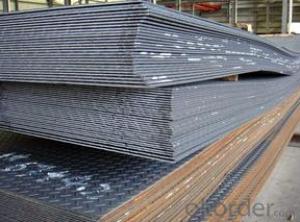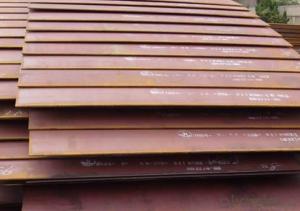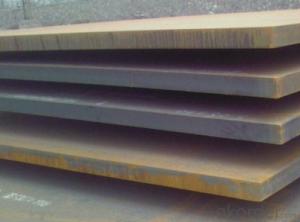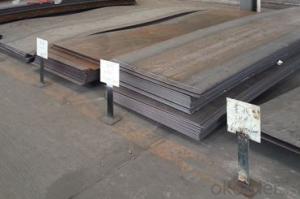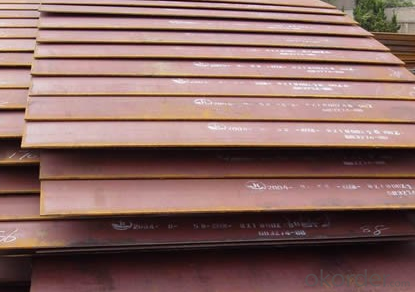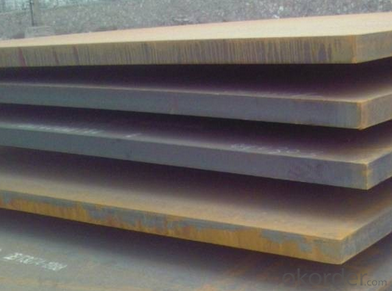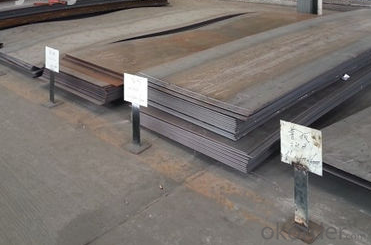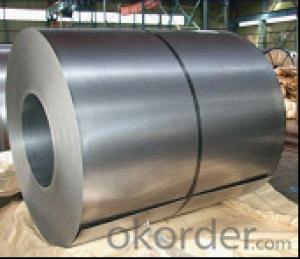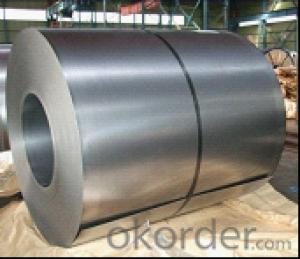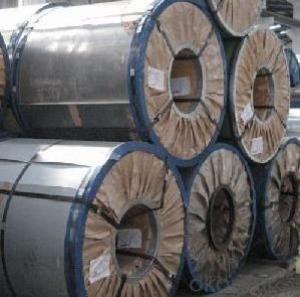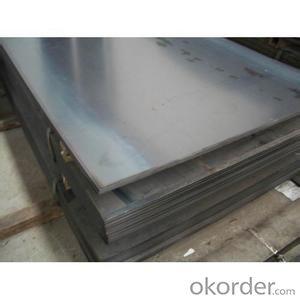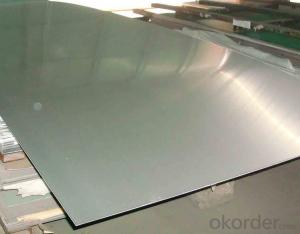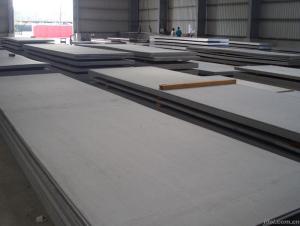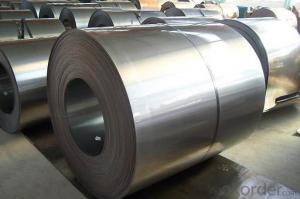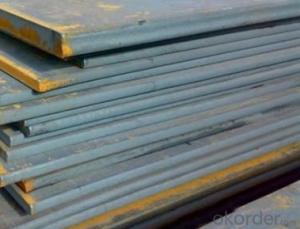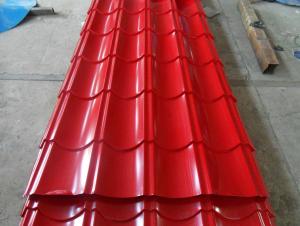Cold Rolled 304L Stainless Steel Sheet E235B CNBM
- Loading Port:
- Qingdao
- Payment Terms:
- TT OR LC
- Min Order Qty:
- 10 pc
- Supply Capability:
- 30 pc/month
OKorder Service Pledge
OKorder Financial Service
You Might Also Like
Quick Details
| Grade: | stainless steel sheet | Standard: | JIS, AISI, ASTM, GB, EN | Length: | 1000-6000mm |
| Thickness: | 0.3-6.0mm cold rolled | Width: | 500-2000mm | ||
| Brand Name: | TISCO | Model Number: | 304 | Type: | stainless steel sheet |
| Application: | construction,decration,foodstuff, gas, metallurgy,biology,chemical,etc | Certification: | SGS | cold rolled finish: | 2B ,BA,Hairline ( brush),No.4 ,8k Mirror |
| hot rolled finish: | No.1 | edge: | raw/mill edge , slit edge | packing: | wooden pallet ,standar export packing |
| inner packing: | interleaving paper | mill test: | quality certification | Inspection: | accept customer inspect |
| Delivery time: | within 5 working days of the stocked grade | Payment term: | T/T or L/C | Quality: | primary quality |
Packaging & Delivery
| Packaging Details: | The packing of 304 steel sheet is wooden packaging;kraft;standard export packaging. |
| Delivery Detail: | The delivery time of 304 steel sheet is within 5 working days |
Specifications
Stainless steel sheet
1.Thickness:0.3-100mm
2.Width:500-3000mm
3.Length:1000-6000mm
4.large stock,short delivery time
Product Description
cold rolled 304 stainless steel sheet
We are suppliers of 304 and 304L Stainless Steel in a wide range of bar, flat, sheet, plate, angle and seamless tubing and pipes.
Stainless steel types 304 and 304L.Type 304 stainless steel material is a kind of common stainless steel materials, corrosion prevention is better than 200 series stainless steel materials. High resistance to high temperature also is better, can to 1000-1
200 degrees. 304 stainless steel has good corrosion and corrosion resistance and good resistance to intergranular corrosion. For oxidizing acid, obtained in the experiment, the concentration of 65% or less under the boiling temperature of nitric acid, 304
stainless steel has a strong corrosion resistance. To most organic and inorganic acid and alkali solution with good corrosion resistance ability.
All stainless stock can be delivered mirror polished if required, Call for details.
Chemistry Data For 304/304L Stainless Steel
304 Stainless Steel | |||||||
Carbon (C) | Manganese (Mn) | Silicon(Si) | Chromium (Cr) | Nickel(Ni) | Phosphorus (P) | Sulfur (S) | Other |
0.08 | 2.0 | 1.0 | 18.00-20.00 | 10.0-14.0 | 0.045 | 0.03 | - |
304L Stainless Steel | |||||||
Carbon (C) | Manganese (Mn) | Silicon(Si) | Chromium (Cr) | Nickel(Ni) | Phosphorus (P) | Sulfur (S) | Other |
0.03 | 2.0 | 1.0 | 17.00-19.00 | 8.0-10.5 | 0.035 | 0.03 | - |
(a) Iron constitutes the remainder. Amounts indicated are maximums or ranges, unless indicated.
Mechanical Data for 304/304L Stainless Steel
Stainless Steel Type | Minimum Tensile Strength (ksi) | Minimum Yield Strength (0.2%, ksi) | Hardnessb |
304 Stainless Steel - Typical Valuesc | 75 | 30 | 88 |
304L Stainless Steel - Typical Valuesc | 70 | 25 | 88 |
- Q: Can steel sheets be used in electronics applications?
- Yes, steel sheets can be used in electronics applications. Steel sheets are commonly used as shielding materials in electronic devices to protect against electromagnetic interference (EMI). They can also be used as structural components in electronic enclosures, cabinets, and racks to provide mechanical strength and durability.
- Q: Can steel sheets be used for agricultural buildings or barns?
- Yes, steel sheets can be used for agricultural buildings or barns. Steel sheets offer numerous advantages for these types of structures. Firstly, steel is a durable and long-lasting material, ensuring that the agricultural building or barn will be able to withstand the test of time and various weather conditions. Steel is also resistant to pests such as termites, which can be a common problem in wooden structures. Additionally, steel sheets are fire-resistant, providing an added layer of safety. Moreover, steel sheets are highly customizable, allowing for flexibility in design and construction. They can be easily cut and shaped to fit the specific needs and requirements of the agricultural building or barn. Steel sheets are available in various thicknesses, providing options for different levels of strength and structural integrity. Furthermore, steel is an environmentally friendly choice for agricultural buildings or barns. It is a recyclable material, meaning that at the end of its lifespan, it can be repurposed and reused, reducing waste and minimizing the environmental impact. Considering all these factors, steel sheets are a great choice for agricultural buildings or barns due to their durability, pest resistance, fire resistance, customizability, and environmental friendliness.
- Q: Where can steel sheets be purchased?
- Steel sheets can be purchased from a variety of places. Some common options include local hardware stores, home improvement centers, and metal supply companies. Many of these places offer a wide range of steel sheet sizes and thicknesses to choose from. Additionally, online retailers and e-commerce platforms also provide a convenient way to purchase steel sheets. These online options often offer a larger selection and competitive pricing. It is important to compare prices, quality, and customer reviews before making a purchase to ensure you are getting the best value for your money.
- Q: Can steel sheets be used for insulation?
- No, steel sheets cannot be used for insulation as they conduct heat and do not possess insulating properties.
- Q: Can steel sheets be bent or formed into different shapes?
- Yes, steel sheets can be bent or formed into different shapes through processes such as cold or hot rolling, stamping, or press braking.
- Q: Can steel sheets be bent without causing damage?
- Yes, steel sheets can be bent without causing damage, provided that the bending process is done carefully and within the limits of the material's properties. Steel sheets are commonly bent using various techniques such as press brake bending or roll bending. These processes involve applying controlled force and pressure to the sheet to achieve the desired shape without causing any permanent deformation or damage. The ability to bend steel sheets without damage depends on several factors, including the thickness and grade of the steel, the bending radius, and the equipment and technique used. Thinner sheets are generally more flexible and easier to bend, while thicker sheets may require higher forces and specialized equipment. It is essential to consider the steel's tensile strength, yield strength, and elongation properties to ensure that the bending process does not exceed its limits. Excessive bending can lead to cracks, fractures, or permanent deformations, compromising the sheet's structural integrity. To prevent damage during bending, it is crucial to follow proper bending techniques and guidelines. This includes using appropriate tooling, ensuring even distribution of force, and avoiding sharp changes in direction or excessive bending angles. Additionally, preheating the steel sheet can make it more pliable and reduce the risk of damage. In summary, steel sheets can be bent without causing damage, but it requires careful consideration of the material's properties, proper equipment, and adherence to bending guidelines. By employing the right techniques and precautions, steel sheets can be successfully bent into various shapes and forms while maintaining their structural integrity.
- Q: Can steel sheets be used in food-grade applications?
- Yes, steel sheets can be used in food-grade applications. Stainless steel sheets, specifically, are commonly used in the food industry due to their excellent corrosion resistance, hygiene properties, and durability. Stainless steel meets the necessary requirements for maintaining food safety and can be easily cleaned, making it a suitable material for food-grade applications such as food processing, storage, and handling equipment.
- Q: How do you determine the quality of steel sheets?
- The quality of steel sheets can be determined through various methods such as checking the chemical composition, conducting mechanical tests, assessing surface finish and appearance, and ensuring dimensional accuracy and uniformity. Additionally, certification from reputable organizations and compliance with industry standards also serve as indicators of the quality of steel sheets.
- Q: What are the different grades of steel sheets available?
- There exists a variety of steel sheet grades, each possessing its own distinctive properties and applications. Among the commonly utilized grades are: 1. Carbon Steel: This grade of steel sheet is the most prevalent and extensively employed. It comprises varying carbon levels and is renowned for its robustness and durability. Carbon steel sheets find utility across diverse sectors, including construction, automotive, and manufacturing. 2. Stainless Steel: Distinguished by its elevated chromium content, this steel sheet grade showcases outstanding resistance to corrosion. Industries such as food processing, chemical, and medical frequently employ stainless steel sheets where corrosion resistance plays a pivotal role. 3. Galvanized Steel: To shield against corrosion, this type of steel sheet is coated with a layer of zinc. Galvanized steel sheets often serve in outdoor settings, such as roofing, fences, and gutters, where exposure to moisture and the elements is commonplace. 4. Alloy Steel: By incorporating additional elements like manganese, nickel, or chromium, this grade of steel sheet enhances its mechanical properties. Alloy steel sheets are extensively used in applications demanding heightened strength, such as construction equipment, aircraft components, and machinery. 5. Tool Steel: Designed with elevated hardness and wear resistance, this grade of steel sheet is ideal for tools and dies. Industries such as automotive, aerospace, and manufacturing frequently employ tool steel sheets. It's crucial to note that these represent only a fraction of the available steel sheet grades, as numerous specialized grades are tailored to specific applications. The choice of grade depends on factors such as desired strength, corrosion resistance, and specific application requirements.
- Q: Are the steel sheets magnetic?
- Indeed, steel sheets possess magnetism. Being predominantly constituted of iron, steel qualifies as a ferromagnetic substance. Consequently, it can be subjected to magnetization and exhibit an attractive force towards other materials with magnetic properties. Steel sheets are frequently employed in contexts necessitating magnetic characteristics, such as the production of magnets, electrical devices, and diverse industrial machinery.
Send your message to us
Cold Rolled 304L Stainless Steel Sheet E235B CNBM
- Loading Port:
- Qingdao
- Payment Terms:
- TT OR LC
- Min Order Qty:
- 10 pc
- Supply Capability:
- 30 pc/month
OKorder Service Pledge
OKorder Financial Service
Similar products
Hot products
Hot Searches
Related keywords
